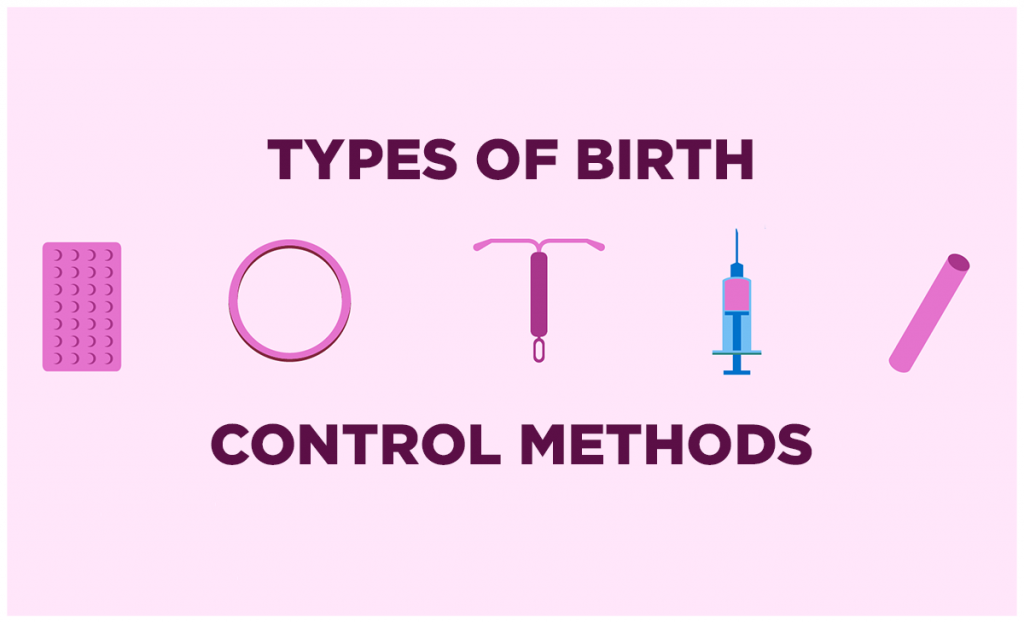Did you read about the tragic story of a newborn baby boy who was found dead with a stab wound by a 15-year-old mother on 8 February this year? Has it made you feel heart-wrenching or raged? According to the statistics from The Royal Malaysian Police (PDRM), at least 10 babies were dumped within a month between 2018 and 2021. Most of the cases were found in housing areas, toilets, garbage disposal areas, sewerage systems and drains which are the common dumping grounds because there are no CCTV cameras, less frequented by the public and are easily accessible.
According to the record of Ministry of Health (MOH), more than 40,000 of teen pregnancies were recorded with 35 percent of cases being out of wedlock in the five years between 2017 to 2022. Malaysia has the highest percentage of baby dumping cases across South East Asia with an average of 100 babies per year. This is partly due to the inadequate sex education which reproductive health and sexual education are still taboo in Malaysia where the religious conservatism is still prevalent . The act of abortion, pre-marital sex and conceiving out of wedlock remain controversial in Malaysia making it harder for women to defend themselves. In general, unintended pregnancy is associated with a greater risk of psychological stress, suicide and unsafe abortion may threaten the health of the individual. Teenage unintended pregnancy also always leads to academic failure and school dropout.
However, what have the government and the society done to help to restrain this issue?

Statistics of Age Group and States That Involved
For the period 2018 to 2021, there are 149 cases involving those between the age group of 18 to 25, 73 cases were in the age of above 25 and 40 cases were in the age of below 18.

According to the state health departments teen pregnancy data from 2017 to 2020, the top five states with the highest number of out of wedlock teen pregnancies were Sarawak, Johor, Selangor, Sabah and Perak.

Awareness of Birth Control in Malaysia
Birth control, also known as contraception, interferes with the natural processes of ovulation, fertilization and implantation to prevent pregnancy. Contraception enables a woman to plan her pregnancy so that it does not interfere with her education or career. Unfortunately, according to a 2019 report, only 53% of Malaysian women of childbearing age used contraception. In other words, nearly half of women in Malaysia lack access to or knowledge of their right to contraception for religious or cultural reasons.
There are several factors that may contribute to the lack of awareness to contraception:
Lack of sex education
Parents-factor
- Parents feel shy or uncomfortable when their children ask them about sex
- Parents expect their children would naturally know everything when they enter maturity
- Parents are responding to such inquiries with less clarity and giving their children fewer precise explanations
- Parents are less open about sex and often assume that their children are too young to understand it
School
- There is no sex education as a mandatory topic in school
- Teachers are refusing to provide sex information to their students as they believe it is not part of their job description
Religion
According to a study in 2012, Malaysian women who did not identify as religious knew more about reproductive health than those who did. This is unfortunate as contraception is legal in Islam for married women. However, if it is not properly taught in schools, women in Malaysia may be unaware of the contraceptive methods available through health clinics even after they marry.
Patriarchal society
- A man as the head of the household has a say over his preferred family size and control over his wife’s body
- Low interest of the pill in male because of the side effects
Prejudice
Stigmatization will drive unwed mothers that need support from families and healthcare professionals away from seeking help from relevant sources.
Unmet Need for Contraception
Unmet need for contraception is defined as the percentage of women of reproductive age with an unmet need for family planning. Which means that women who want to stop or delay childbearing but are not using any method of contraception due to lack of necessary information and knowledge.
“ We are giving awareness to these families so that they can get information and a high level of awareness for those who do not plan to get pregnant, but to use contraceptive methods instead,” – Siti Zailah Mphd Yusoff, deputy minister of The Women, Family and Community Development Ministry.
The ministry has been conducting various programmes in collaboration with the Ministry of Health and non-governmental organisations (NGOs) such as Family Planning Program to raise awareness and ensure that the families get the right information on contraception.
Family Planning Service
The purpose of family planning is a component of sexual and reproductive health and is to determine the right timing to have children, the distance of pregnancy and how much the couple wants in marriage.
Benefits of Family Planning
- Improve the quality of life of women, couples and children
- Helping women plan and distance pregnancy for better maternal and child health
- To prevent unwanted pregnancies
- To save the lives of mothers and babies
- Family planning improves family well-being
Sexual and Reproductive Health (SRH)
SRH information and services have been provided by the Ministry of Health Malaysia through clinics offering multidisciplinary services. SRH services and contraceptives are provided by public healthcare facilities to all groups including young people regardless of their marital status. However, due to the SRH service that are not properly promoted, the unmet needs for contraceptive methods remain high especially among adolescents and young people. Stigma and discrimination play a crucial role in the lack of access to SRH services by adolescents and young people and therefore, healthcare providers should be trained to deliver SRH information and services professionally in a confidential, non-judgmental and non-discriminatory manner.
Comprehensive sexual education has believed to delay initiation of sexual intercourse and decrease the risky sexual behaviour. Hence, an age-appropriate and comprehensive sexual education needs to be properly outlined and introduce in schools nationwide. Some versions of sex education have been attempted to be taught in schools includes the Reproductive and Social health Programme (PEKERTI) launched in 2012 as well as the subsequent Reproductive and Social Health Education (PEERS) which in now taught in schools and covered by Physical Education, Moral, Science and Islamic Studies curricular from Year One to Form Five. However, the current syllabus is too disjointed and lacks crucial information on contraceptives.
Birth Control is All About “Pills”
As sex is still a huge taboo in the corner of the world, birth control is widely misunderstood topic in Malaysia and causing the crisis with baby-dumping and teenage pregnancy. Judgement and discouragement from worried mothers and elders are likely to be met by single women when there are some expression of interest in birth control. There are misconceptions and misinformation about birth control that the pill will encourage people to have sex or so.
“Pill” Is The Only Choice
Birth control pills are the first thing that come into our mind when people mention birth control. Some people even get frustrated when the pills are not working with their body or they are experiencing side effects that are temporary and it usually only lasts for a few months until the body gets used to it. Please be assured that the pill is not the only option in terms of birth control.
Hormonal Birth Control
- Hormonal IUD
- Hormonal patch
- Hormonal injectables
- Implanon
Non-Hormonal Birth Control
- Copper IUD
- Condoms
- Vasectomy
Birth Control Is Only For Birth Control
There is a misconception about birth control being only used to prevent pregnancy. However, the function of birth control is more than that. It can be used to help regulate the menstrual cycle, reduce menstrual pain and also can be used in many reproductive disorders treatment such as endometriosis and polycystic ovarian syndrome.
All Hormonal Pills Are The Same
All of the hormonal pills have the same function but there are two types of pills, combine pills and progesterone-only.
Combine Pills
- Contains both estrogen and progesterone hormone
- Inhibit ovulation and thicken the cervical mucus to prevent sperm from entering the uterus
Progesterone-only
- Contains only progesterone hormone
- Thickens the cervical mucus to prevent sperm from entering the uterus
- Thinning the uterine lining to prevent the implantation of an embryo
Birth Control Pill Causes Infertility
This is the most common misconception by mothers and aunties to dissuade you from obtaining the pill. The pill has been introduced since the 1950’s and there is no evidence to prove that it may cause infertility and birth defects in the long-run.
Is Prescription Needed For Birth Control?
In Malaysia, contraceptives can be purchased without a prescription including the birth control pill but it is suggested to do a basic consultation with doctors or pharmacists. According to WHO guidelines, adolescents should be able to seek contraceptive services without the permission from parents or guardians. However, according to the Ministry of Health guideline and section 2 of the Child Act 2001, parents or guardians should be consented prior to prescribing any forms of contraception by teenagers below 18.
Local cultural beliefs and religion also play a crucial role in influencing shaping of laws and practices in our society. Due to the parallel judicial system of shariah courts in Malaysia, although Muslim women is permitted to practice contraception and family planning, it is advisable to seek prior consent from her husband.
For unmarried persons, there is no law in Malaysia prohibiting the provision of contraceptives.
“As an organisation responsible for the well-being of the people from a social, spiritual and health aspect, contraceptives are afforded to unmarried women after they have gone through counselling with the doctor on duty.” – Wan Hilya Munira, Medical Officer from the Human Reproduction Unit of LPPKN.
Proper healthcare is a universal right that should be available to everyone especially facilities under the Ministry of Health including private organizations and they have no place for moral judgement and forced piety. Medical practitioners should only consider medical factors when treating patients. Treatments should be given to them without getting any influence from how they live in their private lives.
References
- 10 Babies Are Dumped Every Month. Can Malaysia Do Better To Protect Unwanted Babies? (2022, April 27). Retrieved September 22, 2022, from https://www.wikiimpact.com/10-babies-are-dumped-every-month-can-malaysia-do-better-to-protect-unwanted-babies/
- Baby dumping still rampant. (n.d.). Retrieved September 22, 2022, from https://www.astroawani.com/berita-malaysia/baby-dumping-still-rampant-347032
- Birth-control – LPPKN’s non-existent policy. (2019, January 31). Retrieved September 22, 2022, from https://www.malaysiakini.com/letters/462425
- Ethical and legal issues in contraception | MMA Online Contraceptive Course | Page 7. (n.d.). Retrieved September 22, 2022, from http://www.mmasavinglives.my/ethical-and-legal-issues-contraception/7/
- Family Reproductive Planning. (n.d.). Retrieved September 22, 2022, from https://www.malaysia.gov.my/portal/content/27668
- Half Of Malaysian Women Use Contraception: Deputy Minister. (2020, December 8). Retrieved September 22, 2022, from https://codeblue.galencentre.org/2020/12/08/half-of-malaysian-women-use-contraception-deputy-minister/
- Hamzah, N. (2020, March 18). Baby Dumping: A Serious Social Concern. Retrieved September 22, 2022, from https://mypositiveparenting.org/2020/03/18/baby-dumping-a-serious-social-concern/
- Jazmin, R. (2021, June 3). YOUR BODY ON BIRTH CONTROL: DEBUNKING THE MYTHS WITH A GYNAECOLOGIST. Retrieved from https://www.buro247.my/beauty/body-wellness/your-body-on-birth-control.html
- Rina: 28 Teens Get Pregnant Daily, 35% Unmarried. (2021, December 29). Retrieved September 22, 2022, from https://codeblue.galencentre.org/2021/12/30/rina-28-teens-get-pregnant-daily-35-unmarried/
- Saari, Z., Mohd Yusof, F., Norlina Muhamad, S., Halizah Sira, H., & Habil, H. (2017). PREGNANCY OUT OF WEDLOCK AND ABANDONED BABIES: IS ADOPTION ABLE TO SAVE THE BABIES? Retrieved from https://perintis.org.my/ejournal/wp-content/uploads/2018/11/Paper-5-Vol.-7-No.-2-pp.-129-141.pdf
- Sarran, S. (2022, June 7). Baby Dumping Issue In Malaysia. Retrieved from https://tehtalk.com/baby-dumping-issue-in-malaysia/
- The solution to Malaysia’s baby dumping is women in power. (2022, July 6). Retrieved September 22, 2022, from https://www.thejakartapost.com/opinion/2022/07/06/the-solution-to-malaysias-baby-dumping-is-women-in-power.html#:%7E:text=Malaysia%20has%20the%20highest%20percentage,and%20the%20stigma%20around%20abortion.



